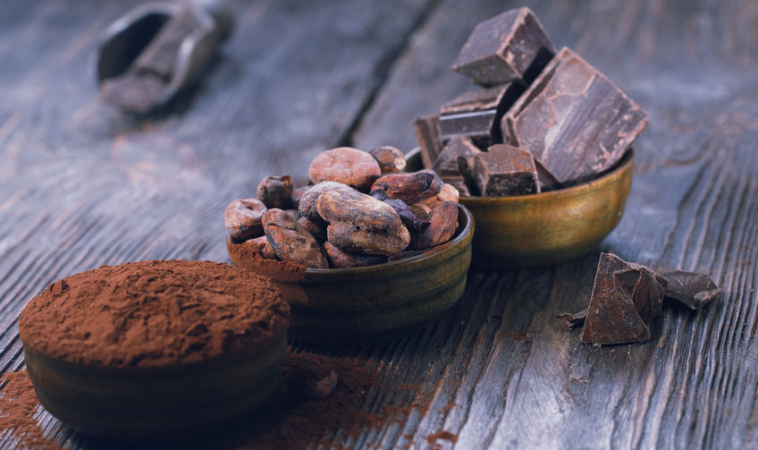Did Someone Say Chocolate?
Well, not Hersey’s milk chocolate. A group studying cocoa has found components within the main ingredient of chocolate that helps release more insulin and respond to increases in blood glucose more efficiently.1 This is not the first time that cocoa has been championed as a health food. Dark chocolate has long been known to help lower blood pressure, through its vasodilative abilities, as well as decrease platelet adhesion.2 Of course, it’s not the cheap stuff, but the $4 bar of dark chocolate, with the 85% cocoa, that is on the brink of being too bitter for most people, that we’re talking about.
Epicatechin Monomers Seem to Protect Beta Cells, Specifically Mitochondria
Epicatechin monomers, which are found in cocoa, have been shown to increase the strength of beta cells in the pancreas – the beta cells are what produces insulin, in response to increases in blood glucose. Epicatechin monomers seem to be protecting the beta cells, specifically the mitochondria by increasing their resilience to oxidative stress. The increase, or protection of mitochondrial function equates to more ATP being produced, and thereby sustained (appropriate) insulin release.
Dark Chocolate May be a Healthy Dessert Choice with Myriad Benefits
The scientists first noted that cocoa was a favorable agent in diabetes by feeding it to animals on a high-fat diet. The cocoa seemed to give the animals more resilience to the high fat diet. They then looked deeper into the mechanism and found the epicatechins to be the likely mechanism. Of course, chocolate is not being advocated as a treatment for diabetes. The amount of cocoa that would need to be eaten is likely to outweigh the benefits, especially if it has sugar, dairy, and other undesirable preservatives added. However, dark chocolate may be a reasonable healthy dessert choice which will also have benefits. As part of other lifestyle and dietary changes, perhaps it could play its part in supporting pancreatic function.
Sources:
- Source
- Flammer AJ, Hermann F, Sudano I, et al. Dark chocolate improves coronary vasomotion and reduces platelet reactivity. Circulation. 2007;116(21):2376-82.
Image Copyright: <a href=’https://www.123rf.com/profile_picmax13′>picmax13 / 123RF Stock Photo</a>
 Node Smith, ND, is a naturopathic physician in Portland, OR and associate editor for NDNR. He has been instrumental in maintaining a firm connection to the philosophy and heritage of naturopathic medicine among the next generation of docs. He helped found the first multi-generational experiential retreat, which brings elders, alumni, and students together for a weekend camp-out where naturopathic medicine and medical philosophy are experienced in nature. Four years ago he helped found the non-profit, Association for Naturopathic ReVitalization (ANR), for which he serves as the board chairman. ANR has a mission to inspire health practitioners to embody the naturopathic principles through experiential education. Node also has a firm belief that the next era of naturopathic medicine will see a resurgence of in-patient facilities which use fasting, earthing, hydrotherapy and homeopathy to bring people back from chronic diseases of modern living; he is involved in numerous conversations and projects to bring about this vision.
Node Smith, ND, is a naturopathic physician in Portland, OR and associate editor for NDNR. He has been instrumental in maintaining a firm connection to the philosophy and heritage of naturopathic medicine among the next generation of docs. He helped found the first multi-generational experiential retreat, which brings elders, alumni, and students together for a weekend camp-out where naturopathic medicine and medical philosophy are experienced in nature. Four years ago he helped found the non-profit, Association for Naturopathic ReVitalization (ANR), for which he serves as the board chairman. ANR has a mission to inspire health practitioners to embody the naturopathic principles through experiential education. Node also has a firm belief that the next era of naturopathic medicine will see a resurgence of in-patient facilities which use fasting, earthing, hydrotherapy and homeopathy to bring people back from chronic diseases of modern living; he is involved in numerous conversations and projects to bring about this vision.


















Chocolate gives my gut severe pain (the good stuff) and migraines, I never used to be this way and I love chocolate haven’t eaten any in a year.